The characters listed below are alphabetized for ease of use. Due to the many historical sources and records used in the research of this novel, there may be variations in spelling. These notations are meant only to provide the reader with a historical resource in support of the story line.
Alessandro di Mariano di Vanni Filipepi, known as Sandro Botticelli (1445 – May 17, 1510), was an Italian painter of the Early Renaissance.
Alessandro Farnese (5 October 1520 – 2 March 1589), an Italian cardinal and diplomat and a great collector and patron of the arts, was the grandson of Pope Paul III.
Alexander III of Macedon (20/21 July 356 BC – 10/11 June 323 BC), commonly known as Alexander the Great, was a king of the Ancient Greek kingdom of Macedon and a member of the Argead dynasty.
 Andromeda is the daughter of the Aethiopian king Cepheus and his wife Cassiopeia in Greek mythology.
Andromeda is the daughter of the Aethiopian king Cepheus and his wife Cassiopeia in Greek mythology.
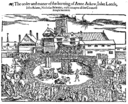 Anne Askew (1521 – 16 July 1546) was an English poet and Protestant who was condemned as a heretic. She is the only woman on record known to have been both tortured in the Tower of London and burnt at the stake.
Anne Askew (1521 – 16 July 1546) was an English poet and Protestant who was condemned as a heretic. She is the only woman on record known to have been both tortured in the Tower of London and burnt at the stake.
Antonio Pollaiuolo (17 January 1429/1433 – 4 February 1498) was an Italian painter, sculptor, engraver and goldsmith during the Italian Renaissance.
 Aphrodite is the Greek goddess of love, beauty, pleasure, and procreation.
Aphrodite is the Greek goddess of love, beauty, pleasure, and procreation.
Apollo is one of the most important and complex of the Olympian deities in classical Greek and Roman religion and mythology.
Aristotle (384 – 322 BC) was a Greek philosopher and scientist.
Arius (AD 250 or 256–336) was a Christian ascetic, theologian, presbyter and priest in Alexandria, Egypt, of the church of the Baucalis.
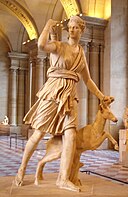 Artemis was one of the most widely venerated of the Ancient Greek deities. Some scholars believe that the name, and indeed the goddess herself, were originally pre-Greek.
Artemis was one of the most widely venerated of the Ancient Greek deities. Some scholars believe that the name, and indeed the goddess herself, were originally pre-Greek.
 Athena is the goddess of wisdom, courage, inspiration, civilization, law and justice, mathematics, strength, war strategy, the arts, crafts, and skill in ancient Greek religion and mythology.
Athena is the goddess of wisdom, courage, inspiration, civilization, law and justice, mathematics, strength, war strategy, the arts, crafts, and skill in ancient Greek religion and mythology.
Augustine of Hippo (13 November 354 – 28 August 430) was an early Christian theologian and philosopher whose writings influenced the development of Western Christianity and Western philosophy.
Augustus (23 September 63 BC – 19 August 14 AD) was the founder of the Roman Empire and its first Emperor, ruling from 27 BC until his death in 14 AD.
Bacchus (see Thiasus).
Bishop Nicholas Shaxton (c. 1485 – 1556) was an English Reformer and Bishop of Salisbury.
Boccaccio (1313 – 21 December 1375) was an Italian writer, poet, correspondent of Petrarch, and an important Renaissance humanist.
Bonfire of the Vanities is a burning of objects condemned by authorities as occasions of sin. The phrase usually refers to the bonfire of 7 February 1497, when supporters of the Dominican priest Girolamo Savonarola collected and publicly burned thousands of objects such as cosmetics, art, and books
Brahman – In Hinduism, it connotes the highest Universal Principle, the Ultimate Reality in the universe. In major schools of Hindu philosophy it is the material, efficient, formal and final cause of all that exists.
Carl Gustav Jung (26 July 1875 – 6 June 1961), was a Swiss psychiatrist and psychotherapist who founded analytical psychology.
Constantine the Great (27 February c. 272 AD – 22 May 337 AD), also known as Constantine I or Saint Constantine was a Roman Emperor from 306 to 337 AD.
Daniele Ricciarelli better known as Daniele da Volterra (1509 – 4 April 1566), was a Mannerist Italian painter and sculptor.
Dante (Durante degli Alighieri) was a major Italian poet of the Late Middle Ages. His Divine Comedy, originally called Comedìa and later christened Divina by Boccaccio, is widely considered the greatest literary work composed in the Italian language and a masterpiece of world literature.
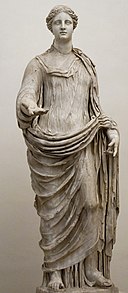 Demeter In ancient Greek religion and Greek mythology, is the goddess of the harvest and agriculture, who presided over grains and the fertility of the earth.
Demeter In ancient Greek religion and Greek mythology, is the goddess of the harvest and agriculture, who presided over grains and the fertility of the earth.
Desiderius Erasmus Roterodamus, or simply Erasmus (28 October 1466 – 12 July 1536) was a Dutch Renaissance humanist, Catholic priest, social critic, teacher, and theologian.
Eptimetheus was the brother of Prometheus. While Prometheus is characterized as ingenious and clever, Epimetheus is depicted as foolish.
Eros was the Greek god of love.
Finnegan’s Wake is a ballad that arose in the 1850s in the music-hall tradition of comical Irish songs.
Fra Antonio is a fellow friar of Paolo Sarpi and purportedly was accused of trying to poison him, consistent with the genre of romance fiction.
Fra Paolo Sarpi (14 August 1552 – 15 January 1623) was a Venetian historian, prelate, scientist, canon lawyer, and statesman.
Francesco Petrarca, commonly anglicized as Petrarch (July 20, 1304 – July 19, 1374), was an Italian scholar and poet in Renaissance Italy, and one of the earliest humanists.
Fulgenzio Micanzio (1570–1654) was a Lombardic Servite friar and theologian. A close associate of Paolo Sarpi, he undertook correspondence for Sarpi and became his biographer.
Gaius Marcius Coriolanus was a Roman general who is said to have lived in the 5th century BC.
Galileo Galilei (15 February 1564 – 8 January 1642) was an Italian polymath: astronomer, physicist, engineer, philosopher, and mathematician, he played a major role in the scientific revolution of the seventeenth century.
Girolamo Savonarola (21 September 1452 – 23 May 1498) was an Italian Dominican friar and preacher active in Renaissance Florence.
Golgotha was, according to the Gospels, a site immediately outside Jerusalem’s walls where Jesus was crucified.
Hades was the ancient Greek chthonic god of the underworld, which eventually took his name.
Ham Zoroaster flourished in the age of Darius. Ham was the Zoroaster of the Eastern Nations, the inventor of magic.
Hannibal (247 – between 183 and 181 BC) fully Hannibal Barca, was a Punic military commander from Carthage, generally considered one of the greatest military commanders in history.
Harmonious and Ariston (Harmodius and Aristogeiton) (both died 514 BC) were two men from ancient Athens. They became known as the Tyrannicides after they killed the Peisistratid tyrant Hipparchus, and were the preeminent symbol of democracy to ancient Athenians.
Hector in Greek mythology, was a Trojan prince and the greatest fighter for Troy in the Trojan War.
Henry Graham Greene (2 October 1904 – 3 April 1991) was an English novelist and author regarded as one of the greatest writers of the 20th century.
Henry VIII (28 June 1491 – 28 January 1547) was King of England from 21 April 1509 until his death.
 Hera is the wife and one of three sisters of Zeus in Greek mythology and religion. Her chief function was as the goddess of women and marriage.
Hera is the wife and one of three sisters of Zeus in Greek mythology and religion. Her chief function was as the goddess of women and marriage.
Hercules is the Roman name for the Greek divine hero Heracles, who was the son of Zeus (Roman equivalent Jupiter) and the mortal Alcmene.
Hermaphrodite In Greek mythology he was the son of Aphrodite and Hermes. According to Ovid, he was born a remarkably handsome boy with whom the water nymph Salmacis fell in love and prayed to be united forever. A god, in answer to her prayer, merged their two forms into one and transformed them into an androgynous form.
Hermes is an Olympian god in Greek religion and mythology, the son of Zeus and the Pleiad Maia. He is the second youngest of the Olympian gods.
Homer is the name ascribed by the Ancient Greeks to the semi-legendary author of the two epic poems, the Iliad and the Odyssey, the central works of Greek literature.
Hymen in ancient Greece, was a god of marriage ceremonies, inspiring feasts and song.
Ignatius of Loyola (c. October 23, 1491 – July 31, 1556) was a Spanish knight, hermit, priest since 1537, and theologian, who founded the Society of Jesus (Jesuits).
 Iphigenia in Greek mythology, was a daughter of King Agamemnon and Queen Clytemnestra, and thus a princess of Argos.
Iphigenia in Greek mythology, was a daughter of King Agamemnon and Queen Clytemnestra, and thus a princess of Argos.
Jason was an ancient Greek mythological hero who was famous for his role as the leader of the Argonauts and their quest for the Golden Fleece.
Jeremiah also called the “Weeping prophet” was one of the major prophets of the Hebrew Bible (Christian Old Testament).
John Chrysostom (c. 349 – 407, Archbishop of Constantinople, was an important Early Church Father.
John Lacells (died 1546) was an English sixteenth-century courtier and Protestant martyr.
John Milton (9 December 1608 – 8 November 1674) was an English poet, polemicist, man of letters.
Jupiter or Jove is the king of the gods and the god of sky and thunder in Ancient Roman religion and mythology.
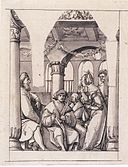 Leaena was a courtesan, an educated, sophisticated female companion and the mistress of Aristogeiton the Tyrannicide.
Leaena was a courtesan, an educated, sophisticated female companion and the mistress of Aristogeiton the Tyrannicide.
 Leda in Greek mythology was the wife of king Tyndareus of Sparta. Her myth gave rise to the popular motif in Renaissance and later art of Leda and the Swan. She was the mother of Helen of Troy.
Leda in Greek mythology was the wife of king Tyndareus of Sparta. Her myth gave rise to the popular motif in Renaissance and later art of Leda and the Swan. She was the mother of Helen of Troy.
Les Miserables is a French historical novel by Victor Hugo, first published in 1862, that is considered one of the greatest novels of the 19th century.
 Luna (goddess) is the ancient Roman divine personification of the Moon.
Luna (goddess) is the ancient Roman divine personification of the Moon.
 Mae West (August 17, 1893 – November 22, 1980) was an American actress, singer, playwright, screenwriter, comedian, and sex symbol whose entertainment career spanned seven decades.
Mae West (August 17, 1893 – November 22, 1980) was an American actress, singer, playwright, screenwriter, comedian, and sex symbol whose entertainment career spanned seven decades.
Marguerite Porete (c. 1248/1250 – 1 June 1310) was a French-speaking mystic and the author of The Mirror of Simple Souls, a work of Christian mysticism dealing with the workings of agape (divine love). She was burnt at the stake for heresy in Paris in 1310.
Maria Cross is a book by Irish writer Conor Cruise O’Brien that explores in a number of 19th century and 20th century so-called Catholic novelists the idea that in this fiction there is an unrelenting link between women, sexuality and the cross.
Marin Mersenne (8 September 1588 – 1 September 1648) was a French theologian, ordained priest, philosopher, mathematician and music theorist.
Marina Carina is an Italian expression and a lament meaning loosely Marina of my heart or you are my heart.
Marina of Murano is the central female character in The Golden book of Venice. Murano is an area of Venice.
Mars was the god of war and also an agricultural guardian, a combination characteristic of early Rome.
Marsilio Ficino (19 October 1433 – 1 October 1499) was an Italian scholar and Catholic priest who was one of the most influential humanist philosophers of the early Italian Renaissance.
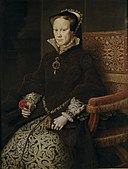 Mary I (18 February 1516 – 17 November 1558) was the Queen of England and Ireland from July 1553 until her death. Her executions of Protestants caused her opponents to give her the sobriquet “Bloody Mary”.
Mary I (18 February 1516 – 17 November 1558) was the Queen of England and Ireland from July 1553 until her death. Her executions of Protestants caused her opponents to give her the sobriquet “Bloody Mary”.
Medici Family was an Italian banking family, political dynasty and later royal house that first began to gather prominence under Cosimo de’ Medici in the Republic of Florence during the late 14th century.
Michelangelo di Lodovico Buonarroti Simoni (6 March 1475 – 18 February 1564) was an Italian sculptor, painter, architect, and poet of the High Renaissance who exerted an unparalleled influence on the development of Western art.
Molly Bloom is a fictional character in the novel Ulysses by James Joyce.
Neptune was the god of freshwater and the sea in Roman religion. He is the counterpart of the Greek god Poseidon.
Nestorianism is a Christological doctrine that emphasizes a distinction between the human and divine persons of Jesus. It was advanced by Nestorius (386–450), Patriarch of Constantinople from 428 to 431.
Nicolaus Copernicus (19 February 1473 – 24 May 1543) was a Renaissance mathematician and astronomer.
Odysseus is the legendary Greek king of Ithaca and the hero of Homer’s epic poem the Odyssey. He also plays a key role in Homer’s Iliad and other works in that same epic cycle.
Orpheus was a legendary musician, poet, and prophet in ancient Greek religion and myth.
Ottavio Farnese (9 October 1524 – 18 September 1586) reigned as Duke of Parma and Piacenza from 1547 and Duke of Castro from 1545 until his death. He was the grandson of Pope Paul III.
Ovid (Publius Ovidius Naso) (20 March 43 BC – AD 17/18), was a Roman poet who lived during the reign of Augustus.
 Pandora in Greek mythology, was the first human woman created by the gods, specifically by Hephaestus and Athena on the instructions of Zeus.
Pandora in Greek mythology, was the first human woman created by the gods, specifically by Hephaestus and Athena on the instructions of Zeus.
Paulina Busa, a noble woman of Canosa di Puglia (which is in present day southern Italy).
Pegalius I (556–561), Pope of Rome during the Byzantine Papacy (537-752).
Penelope is the wife of Odysseus.
 Persephone in Greek mythology, is the daughter of Zeus and the harvest goddess Demeter, and is the queen of the underworld.
Persephone in Greek mythology, is the daughter of Zeus and the harvest goddess Demeter, and is the queen of the underworld.
Perseus, in Greek mythology is the legendary founder of Mycenae and of the Perseid dynasty of Danaans, He beheaded the Gorgon Medusa and saved Andromeda from the sea monster Cetus.
Petrarch (July 20, 1304 – July 20, 1374) was an Italian scholar and poet in Renaissance Italy, and one of the earliest humanists.
Plato (428/427 or 424/423 – 348/347 BCE) was a philosopher in Greece and the founder of the Academy in Athens, the first institution of higher learning in the Western world.
Plotinus (c. 204/5 – 270) was a major Greek-speaking philosopher of the ancient world. In his philosophy there are three principles: the One, the Intellect, and the Soul.
Pope Alexander VI (1199 or ca. 1185 – 25 May 1261) Born as Rinaldo di Jenne was Pope from 12 December 1254 to his death in 1261.
Pope Alexander VII (13 February 1599 – 22 May 1667), born Fabio Chigi, was Pope from 7 April 1655 to his death in 1667.
Pope Anastasius II (birth unknown – died 19 November 498) was Pope from 24 November 496 to his death in 498.
Pope Clement VII (Clemens VII; 26 May 1478 – 25 September 1534), born Giulio di Giuliano de’ Medici, was Pope from 19 November 1523 to his death in 1534.
Pope Clement VIII (24 February 1536 – 3 March 1605), born Ippolito Aldobrandini, was Pope from 2 February 1592 to his death in 1605.
Pope Francis (born Jorge Mario Bergoglio, 17 December 1936) is the 266th and current Pope of the Catholic Church.
Pope Hadrian I (Pope Adrian I – Latin: Hadrianus, I c. 700 – 25 December 795) was Pope from 1 February 772 to his death in 795. He was the son of Theodore, a Roman nobleman.
Pope Innocent VIII (1339 – 6 November 1406), born Cosimo de’ Migliorati, was Pope from 17 October 1404 to his death in 1406.
Pope John Paul II (born Karol Józef Wojtyła (18 May 1920 – 2 April 2005), served as Pope from 1978 to 2005, Canonized in 2014.
Pope Julius III (10 September 1487 – 23 March 1555), born Giovanni Maria Ciocchi del Monte, was Pope from 7 February 1550 to his death in 1555.
Pope Leo X (11 December 1475 – 1 December 1521), born Giovanni di Lorenzo de’ Medici, was Pope from 9 March 1513 to his death in 1521.
Pope Nicholas V (15 November 1397 – 24 March 1455), born Tommaso Parentucelli, was Pope from 6 March 1447 until his death in 1455.
Pope Paul III (29 February 1468 – 10 November 1549), born Alessandro Farnese, was Pope from 13 October 1534 to his death in 1549.
Pope Paul V (17 September 1552 – 28 January 1621), born Camillo Borghese, was Pope from 16 May 1605 to his death in 1621.
Pope Pius IV (31 March 1499 – 9 December 1565), born Giovanni Angelo Medici, was Pope from 25 December 1559 to his death in 1565. He is known for presiding over the final session of the Council of Trent.
Pope Pius IX (I13 May 1792 – 7 February 1878), born Giovanni Maria Mastai-Ferretti, was pope from 16 June 1846 to his death in 1878.
Pope Pius V (17 January 1504 – 1 May 1572), born Antonio Ghislieri (from 1518 called Michele Ghislieri), was Pope from 8 January 1566 to his death in 1572.
Poseidon was one of the twelve Olympian deities of the pantheon in Greek mythology. His main domain was the ocean, and he is called the “God of the Sea”.
Prometheus is a Titan in Greek mythology, best known as the deity in Greek mythology who was the creator of mankind and its greatest benefactor, who stole fire from Mount Olympus and gave it to mankind.
Proteus, in Greek mythology is an early sea-god or god of rivers and oceanic bodies of water, one of several deities whom Homer calls the “Old Man of the Sea”.
Publius Ovidius Naso, known as Ovid (20 March 43 BC – AD 17/18), was a Roman poet who lived during the reign of Augustus. He was a contemporary of Virgil and Horace.
René Karl Wilhelm Johann Josef Maria Rilke (4 December 1875 – 29 December 1926)—better known as Rainer Maria Rilke—was a Bohemian-Austrian poet and novelist.
Reynard is the main character in a literary cycle of allegorical French, Dutch, English, and German fables. Those stories are largely concerned with Reynard, an anthropomorphic red fox and trickster figure.
 Rhea Silvia (also known as Ilia) was the mythical mother of the twins Romulus and Remus, who founded the city of Rome.
Rhea Silvia (also known as Ilia) was the mythical mother of the twins Romulus and Remus, who founded the city of Rome.
Roberto Gambini is a Jungian psychoanalyst who resides in São Paulo, Brazil, and earned his diploma in analytical psychology from the C. G. Jung Institute in Zurich, Switzerland.
Romulus and Remus were the twin brothers and main characters of Rome’s foundation myth.
 Semiramis was the legendary wife of King Ninus, succeeding him to the throne of Assyria.
Semiramis was the legendary wife of King Ninus, succeeding him to the throne of Assyria.
Sigmund Freud (born Sigismund Schlomo Freud; 6 May 1856 – 23 September 1939) was an Austrian neurologist, now known as the father of psychoanalysis.
Simon Magnus is a misty figure, is referred to in the New Testament, and taken on characteristics of the sorcerer, the heretic, the magician. This is the role he assumed in early Christian literature.
Simon of Trent also known as Simeon; (1472 – March 21, 1475) was a boy from the city of Trent, whose disappearance and murder was blamed on the leaders of the city’s Jewish community.
Simone de Beauvoir (9 January 1908 – 14 April 1986) was a French writer, intellectual, existentialist philosopher, political activist, feminist and social theorist.
Sir Thomas More (7 February 1478 – 6 July 1535), venerated by Catholics as Saint Thomas More, was an English lawyer, social philosopher, author, statesman and noted Renaissance humanist.
Socrates (470/469 – 399 BC) was a classical Greek (Athenian) philosopher credited as one of the founders of Western philosophy.
St John Damascene (c. 675 or 676 – 4 December 749) was a Syrian monk and priest, born and raised in Damascus.
St. Augustine (13 November 354 – 28 August 430) was an early Christian theologian and philosopher whose writings influenced the development of Western Christianity and Western philosophy.
 St. Hildegad von Bingen (1098 – 17 September 1179), also known as Saint Hildegard was a German Benedictine abbess, writer, composer, philosopher, Christian mystic, and visionary.
St. Hildegad von Bingen (1098 – 17 September 1179), also known as Saint Hildegard was a German Benedictine abbess, writer, composer, philosopher, Christian mystic, and visionary.
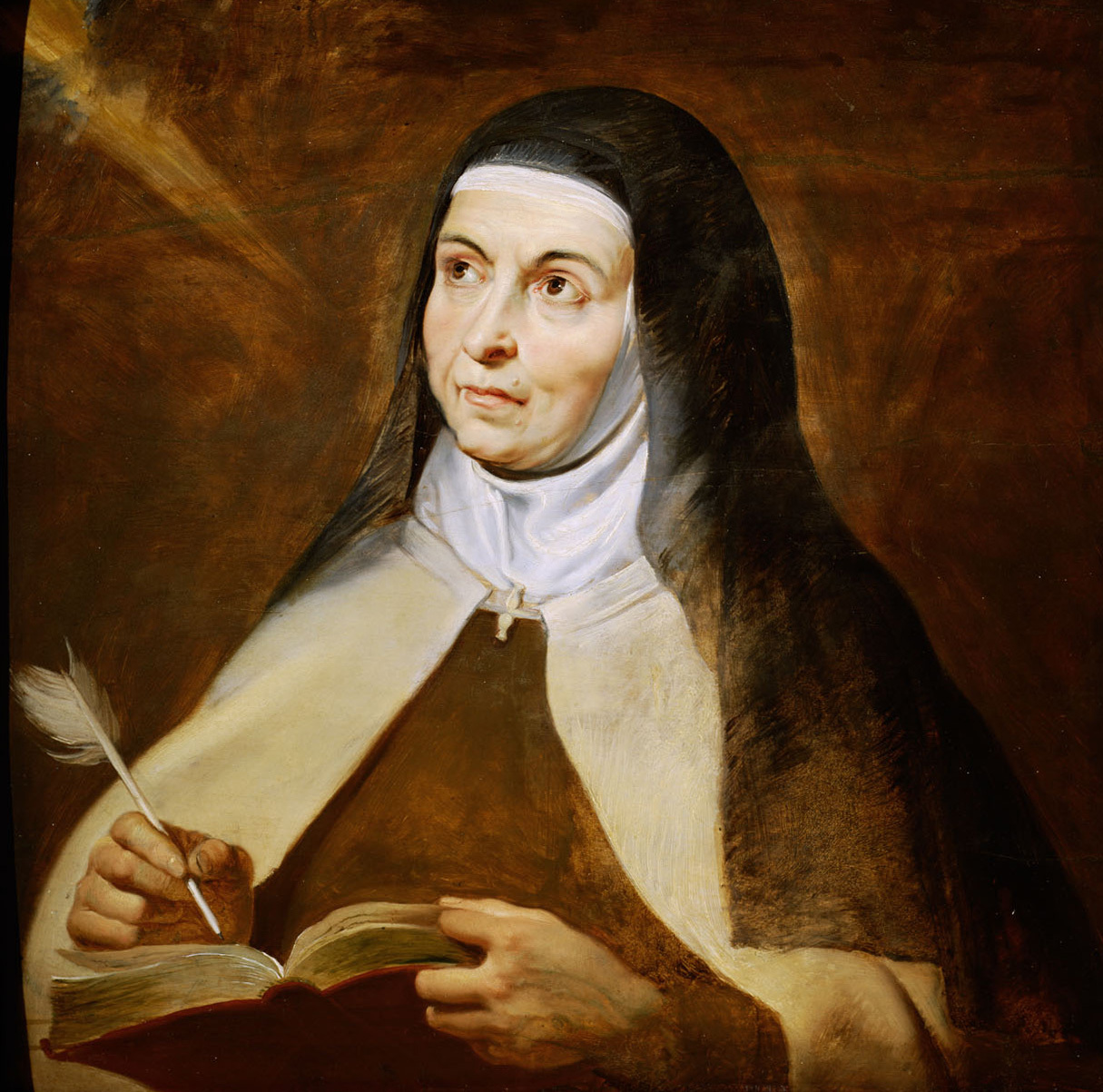 St. Therese of Avila ((28 March 1515 – 4 October 1582), was a prominent Spanish mystic, Roman Catholic saint, Carmelite nun and author during the Counter Reformation, and theologian of contemplative life through mental prayer.
St. Therese of Avila ((28 March 1515 – 4 October 1582), was a prominent Spanish mystic, Roman Catholic saint, Carmelite nun and author during the Counter Reformation, and theologian of contemplative life through mental prayer.
Temple of Artemis was a Greek temple dedicated to the goddess Artemis. It was located in Ephesus. One of the Seven Wonders of the Ancient World, it was completely rebuilt three times before its final destruction in 401 AD.
 Thais was a famous Greek hetaera who lived during the time of Alexander the Great and accompanied him on his campaigns.
Thais was a famous Greek hetaera who lived during the time of Alexander the Great and accompanied him on his campaigns.
The Argonauts were a band of heroes in Greek mythology, around 1300 BCE.
The Golden Bough: A Study in Comparative Religion (retitled The Golden Bough: A Study in Magic and Religion in its second edition) is a wide-ranging, comparative study of mythology and religion, written by the Scottish anthropologist Sir James George Frazer (1854–1941).
The Recognitions of Clement, The authorship of the Clement book is still in question. It probably comes from various sources and has been improved by translators over time
Tiziano Vecelli, known as Titian (1488/1490– 27 August 1576) was an Italian painter, the most important member of the 16th-century Venetian school.
Tommaso d’Aquino, also known as Thomas Aquinas (1225 – 7 March 1274), was an Italian Dominican friar and Catholic priest who was an immensely influential philosopher, theologian and jurist.
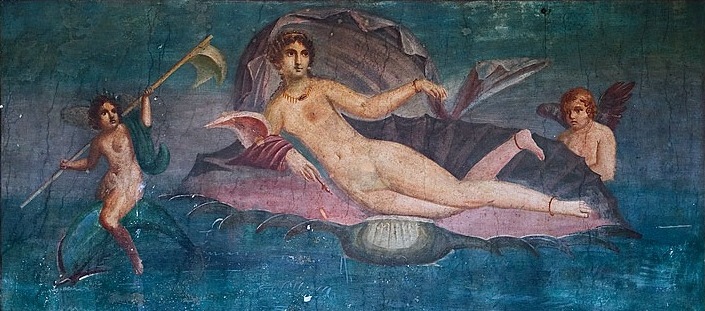 Venus is the Roman goddess whose functions encompassed love, beauty, desire, sex, fertility, prosperity and victory.
Venus is the Roman goddess whose functions encompassed love, beauty, desire, sex, fertility, prosperity and victory.
Veturia was a Roman matron, the mother of the possibly legendary Roman general Gaius Marcius Coriolanus.
Virgil (Publius Vergilius Maro) (October 15, 70 BC – September 21, 19 BC) was an ancient Roman poet of the Augustan period.
Volumnia (according to Plutarch, her name was Vergilia) was the wife of Gaius Marcius Coriolanus in ancient Rome.
Walter “Walt” Whitman (May 31, 1819 – March 26, 1892) was an American poet, essayist and journalist. A humanist, he was a part of the transition between transcendentalism and realism, incorporating both views in his works.
 Whore of Babylon is a female figure and also place of evil mentioned in the Book of Revelation in the Bible. Her full title is given as “Babylon the Great, the Mother of Prostitutes and Abominations of the Earth.”
Whore of Babylon is a female figure and also place of evil mentioned in the Book of Revelation in the Bible. Her full title is given as “Babylon the Great, the Mother of Prostitutes and Abominations of the Earth.”
William Blake (28 November 1757 – 12 August 1827) was an English poet, painter, and printmaker.
William Butler Yeats (13 June 1865 – 28 January 1939) was an Irish poet and one of the foremost figures of 20th century literature.
William Tindale (1494–1536) was an English scholar who became a leading figure in Protestant reform in the years leading up to his execution. He is well known for his translation of the Bible into English.
Zeus was the sky and thunder god in ancient Greek religion, who ruled as king of the gods of Mount Olympus.
Zoroaster was the founder of Zoroastrianism, one of the world’s earliest religions. Though not definitive he is placed living in western Iran anywhere between 625 and 550 BCE.4
